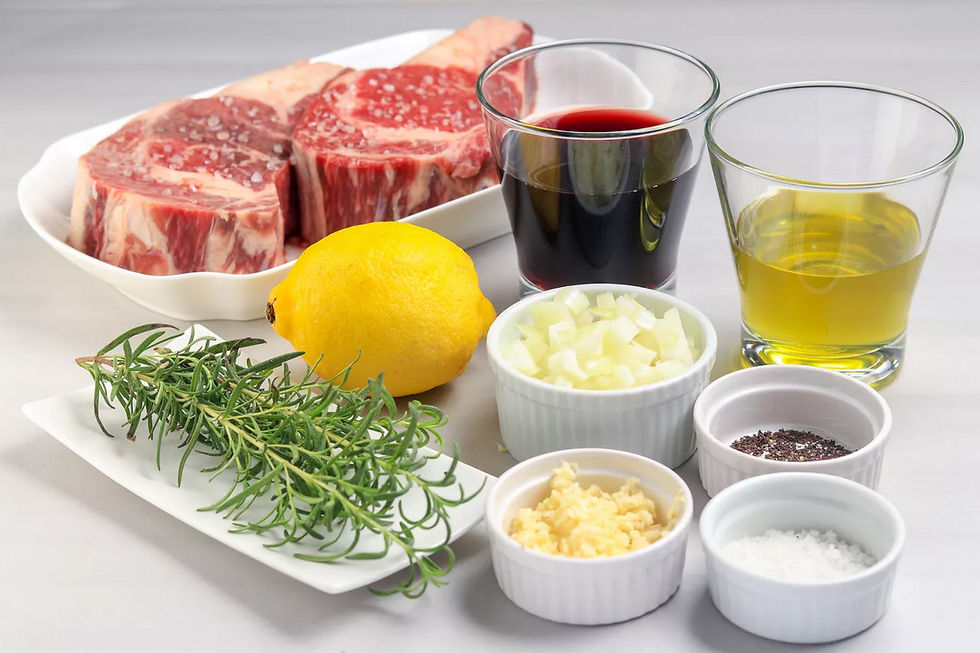To Marinade or not to Marinade?
- Chef Brian

- Aug 28, 2020
- 3 min read

Got a tougher piece of meat? Got a bland chicken breast? Hunk of super-lean game meat? Looking to get big flavor in something with a shorter cooking time? Marinade it!
According to Larousse's Gastronomique a marinade is "a flavored liquid, cooked or uncooked, in which savory ingredients, such as meat, offal (organ meats), game, fish, or vegetables are steeped for varying lengths of times. The process of soaking is known as marinading. Its principal purpose is to flavor the food, but it also makes certain meats more tender by softening the fibers and adding moisture." OK, what does that mean? If means you're adding some flavor and making it more tender. The length of marinading greatly depends on the size of the piece of food and what it is. A large hunk of tough beef can marinade for days! A piece of fish or shellfish only needs an hour at most. In fact, the acid in a marinade can "cook" the seafood if left in too long. Think ceviche!

At it's most base level a marinade is an acid, a fat and added flavors. You can literally make a marinade with oil and vinegar. But where would the fun be in that? Fresh and dried herbs and spices, salt and pepper, along with aromatics like green onions, garlic and ginger are also common players in the marinade world. A few of my favorite marinades rely heavily on ginger and garlic. While you could just use salt, other salty ingredients can up the flavor quotient significantly. Fish sauce is one of those ingredients. Used heavily in Thai and Vietnamese cuisine, it is a pungent and salty sauce made of fermented fish. Sounds delicious right? Don't let the description dissuade you. Used in the right amount, it adds a great umami quality to foods. Dishes such at Pad Thai would not taste right without it. Too much of it, however, and its just plain nasty. Soy sauce, oyster sauce and Worcestershire sauce are also great ways to add salt to the dish and more flavor than just salt. Coincidentally, all three of those sauces are fermented products, like fish sauce as well.

A close cousin to the marinade is a brine. A brine is basically a heavily salted liquid that adds juiciness and seasoning to the piece of meat. One of the main differences is that brines generally don't contain any fats. Some brines contain seasonings and herbs and spices, like a marinade. A marinade can act as a brine, as well. Where I may marinade a piece of beef I'm going to throw on the grill, I will brine a turkey before roasting or deep frying. But that's another blog...
Marinades can act as sauces as well. Either as is, or after being reduced. I will caution you that once you soak raw meat in a marinade, you're going to want to bring the marinade to a boil and let it boil for a few minutes to kill off any nastiness the raw meat may have left in. Sometimes reducing the sauce or adding a slurry to thicken it up makes a very nice sauce!
If you aren't in the habit of using a lot of marinades, give it a try! It will add loads of flavor to your food and not really cost you any additional cooking time.
Here is one of my favorite marinades for pork.






Comments